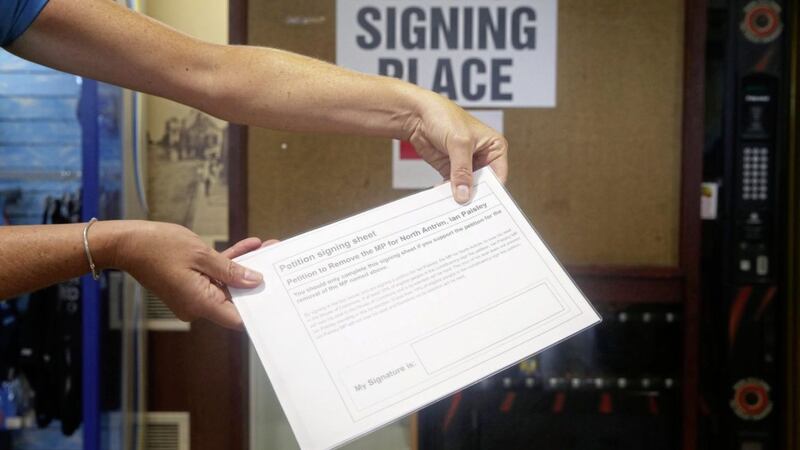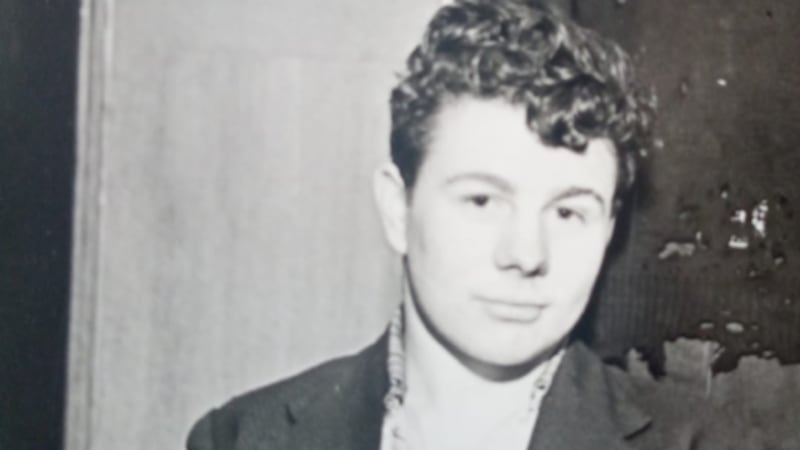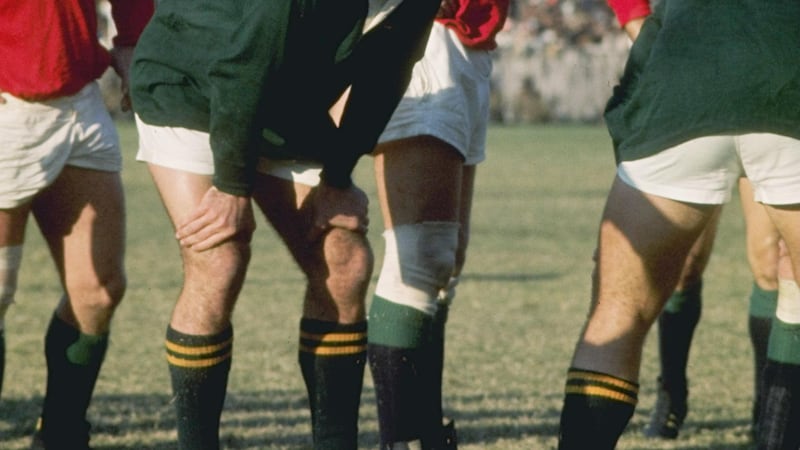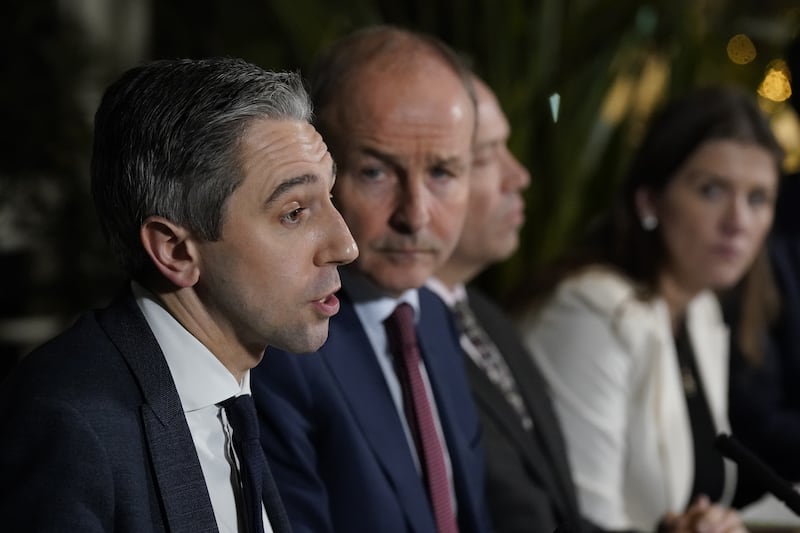People putting their name to the petition to unseat shamed MP Ian Paisley cannot be identified, according to legislation.
Those who publicise individuals who have signed the first recall petition in UK parliamentary history risk prosecution for a criminal offence, the chief electoral officer has said.
There was confusion yesterday morning as the identity of a councillor who was among the first to sign the petition was named by a number of news organisations.
The councillor appeared only too happy to be identified and issued a press release actively encouraging others to put their name to the petition.
However, chief electoral officer Virginia McVea was forced to make a round of phone calls to journalists yesterday morning explaining what the legislation prohibited.
She said even if a person consented to be identified it was still an offence to publicise their name.
Predictions based on information garnered at one of the three petition signing places are also unlawful under the legislation, which states that any person who contravenes the rules is "liable on summary conviction to a fine or to imprisonment for a term not exceeding six months".
Encouraging others to sign the petition is permitted but only by those registered as campaigners with the Electoral Office.
Read more:
- Trickle of signatories marks historic recall petition's opening day
- Ian Paisley's opponents say unprecedented petition is about 'integrity'








